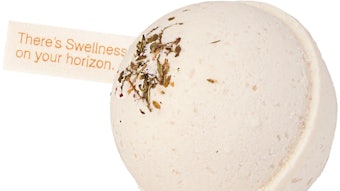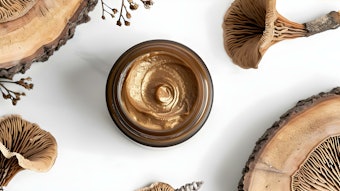
Eating healthier is a common recommendation for people looking to reduce their risk of heart disease, cancer, diabetes and other medical concerns. Now a growing body of research is evaluating whether certain dietary changes can impact the skin by reducing the signs of aging and improving some skin conditions.
Nutricosmetics—the use of nutrition or nutritional supplements for skin health and beauty—is popular abroad and may be the next frontier for improving skin health and beauty in the United States.
AAD expert
Information is provided by Patricia Farris, MD, FAAD, a board-certified dermatologist and a clinical assistant professor of dermatology at Tulane University School of Medicine in New Orleans.
Nutricosmetics for beauty
Farris shares these insights on how supplements might improve skin health:
- Taken daily, common nutricosmetic supplements include ingredients, such as vitamins, peptides, marine proteins and carotenoids. However, nutricosmetic supplements are not reviewed or approved by the U.S. Food and Drug Administration.
- Supplements are purported to offer a wide-range of benefits to the skin, such as softening lines and wrinkles, and improving elasticity and roughness. In addition, supplements have been studied for their effectiveness in improving difficult-to-treat skin problems, such as melasma.
- Some cosmetic companies are extending their existing topical cosmeceutical product lines by offering beauty supplements and recommending that they be used together to potentially improve the skin’s appearance.
- One recent study showed that in individuals taking a daily supplement containing collagen peptides, there was a significant reduction in eye wrinkle depth. Study participants also showed improvement in their skin’s collagen and elastin after eight weeks of taking the supplements.
According to Farris, diet changes could also improve skin health. She says:
- Diets high in vitamin C and linoleic acid (which is found in certain types of oils) and low in fat and carbohydrates are associated with fewer wrinkles and age-related dryness and less skin thinning.
- Reducing sugar intake may protect elastin and collagen molecules in the skin. Research has shown that a diet high in sugar can damage these molecules, leading to wrinkles and sagging skin.
Nutricosmetics for photoaging and sun protection
Photoaging—aging due to exposure to ultraviolet (UV) light—contributes significantly to the visible signs of aging, such as brown spots and deep wrinkles. While supplements and foods are being explored for sun protection, they should not be used as a replacement for more traditional sun protection methods.
There is currently no scientific evidence that oral supplements alone can provide an adequate level of protection from the sun’s damaging UV rays. Consumers can use these supplements and foods in combination with seeking shade, wearing sun-protective clothing and applying sunscreen.
Farris explains how supplements and foods might also help protect skin from sun exposure with these insights:
- Antioxidants, such as vitamins C and E, lycopene, green tea polyphenols, beta carotene, and cocoa flavanols, have been shown to offer some protection from ultraviolet light-induced skin damage. These antioxidants can be found in vegetables and fruits, tea and certain types of chocolate.
- Supplements containing polypodium leucotomos, an extract of a Central American fern plant, or the probiotic Lactobacillus johnsonii have also been shown to offer some sun protection.
- Supplements containing synergistic antioxidants have the potential to also reduce sun damage. A supplement containing a combination of beta carotene, lycopene, vitamins C and E, selenium and proanthocyanidins was shown to provide some protection against sunburn and damaging enzymes that break down collagen.
According to Farris, dietary changes could also protect sun-exposed skin. She says:
- Research has been conducted to determine if diets high in vegetables, legumes, fish and olive oil and low in dairy and sugar products may protect sun-exposed skin from wrinkling.
- This research may show that diets high in antioxidants found in vegetables and olive oil may help protect the skin from oxidative stress caused by sun exposure. Oxidative stress causes damage to cell membranes, DNA and skin proteins like elastin and collagen.
Nutrition and skin conditions
Studies have shown diets full of high glycemic index foods, such as processed breads or snacks or sugary carbonated drinks, or high in dairy, may contribute to acne flares. Farris says improving the diet of people with acne is now considered an essential component of effective acne treatment.
Farris explains that research is being conducted on people with atopic dermatitis to determine if nutritional intervention with probiotics may treat or even prevent atopic dermatitis. She also says research shows that psoriasis can be improved by following a low-calorie diet.
AAD expert advice
“Healthy eating habits appear to be a valuable tool to reduce the signs of skin aging as well as the management of certain skin conditions,” says Farris. “Many dermatologists are involved in the groundbreaking research exploring the benefits of nutricosmetics to the skin. While the science behind nutrition, supplementation and the skin is still evolving, research suggests a diet high in antioxidants and healthy fats and low in sugars, refined carbohydrates and bad fats may help the skin look younger. A board-certified dermatologist can answer questions about how nutrition and supplementation may play a role in your skin health or in managing a skin condition.”










